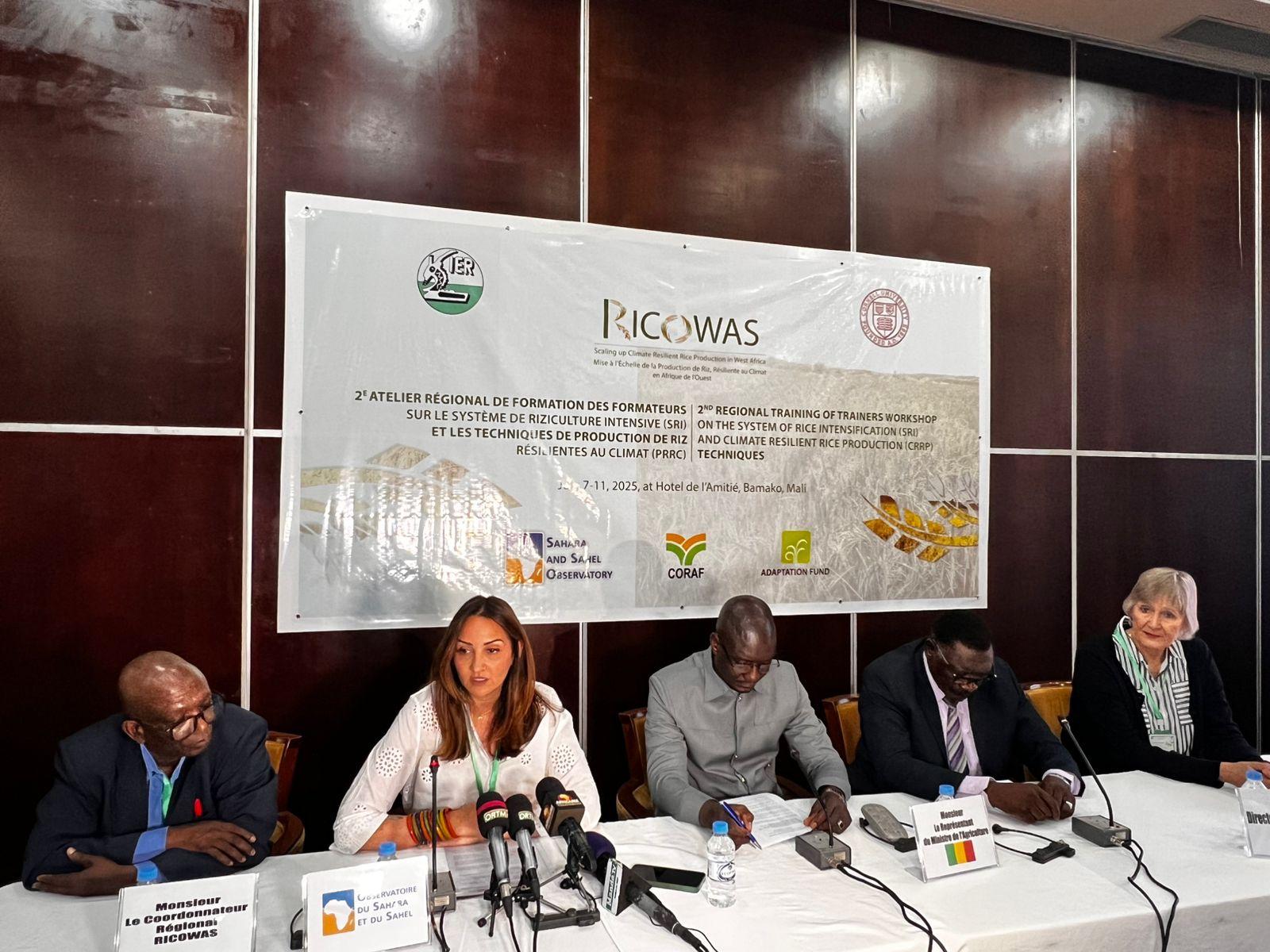
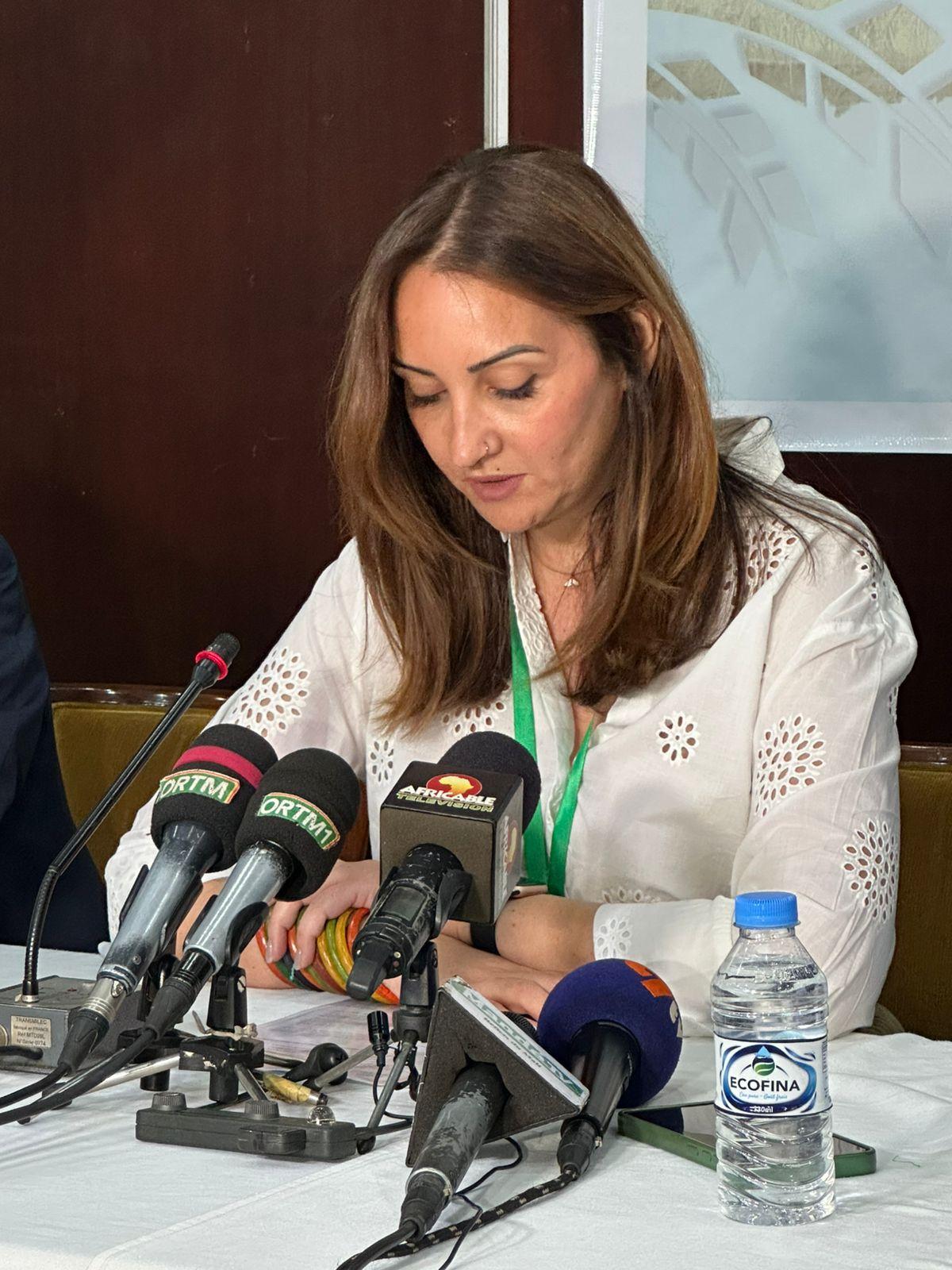
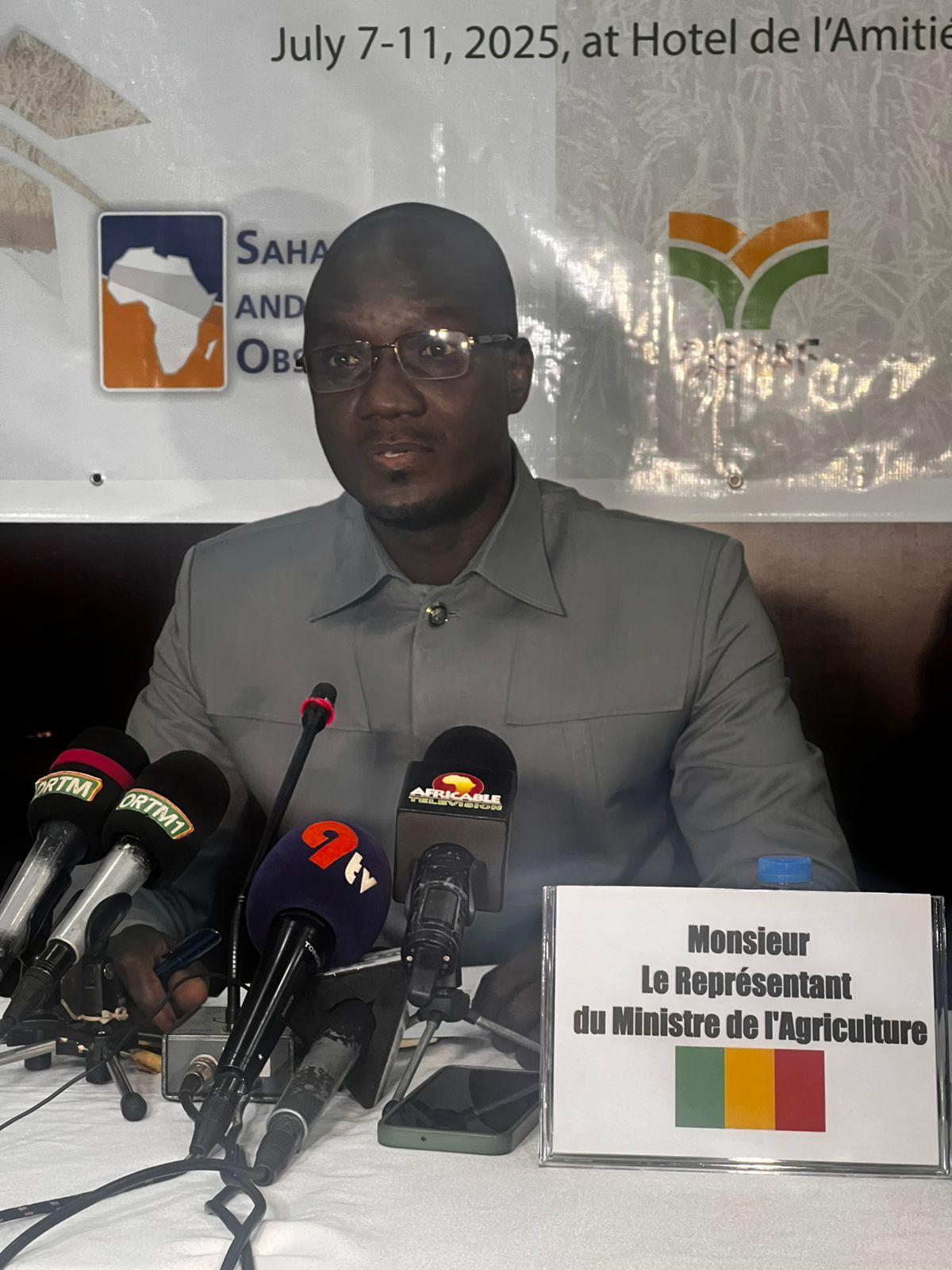
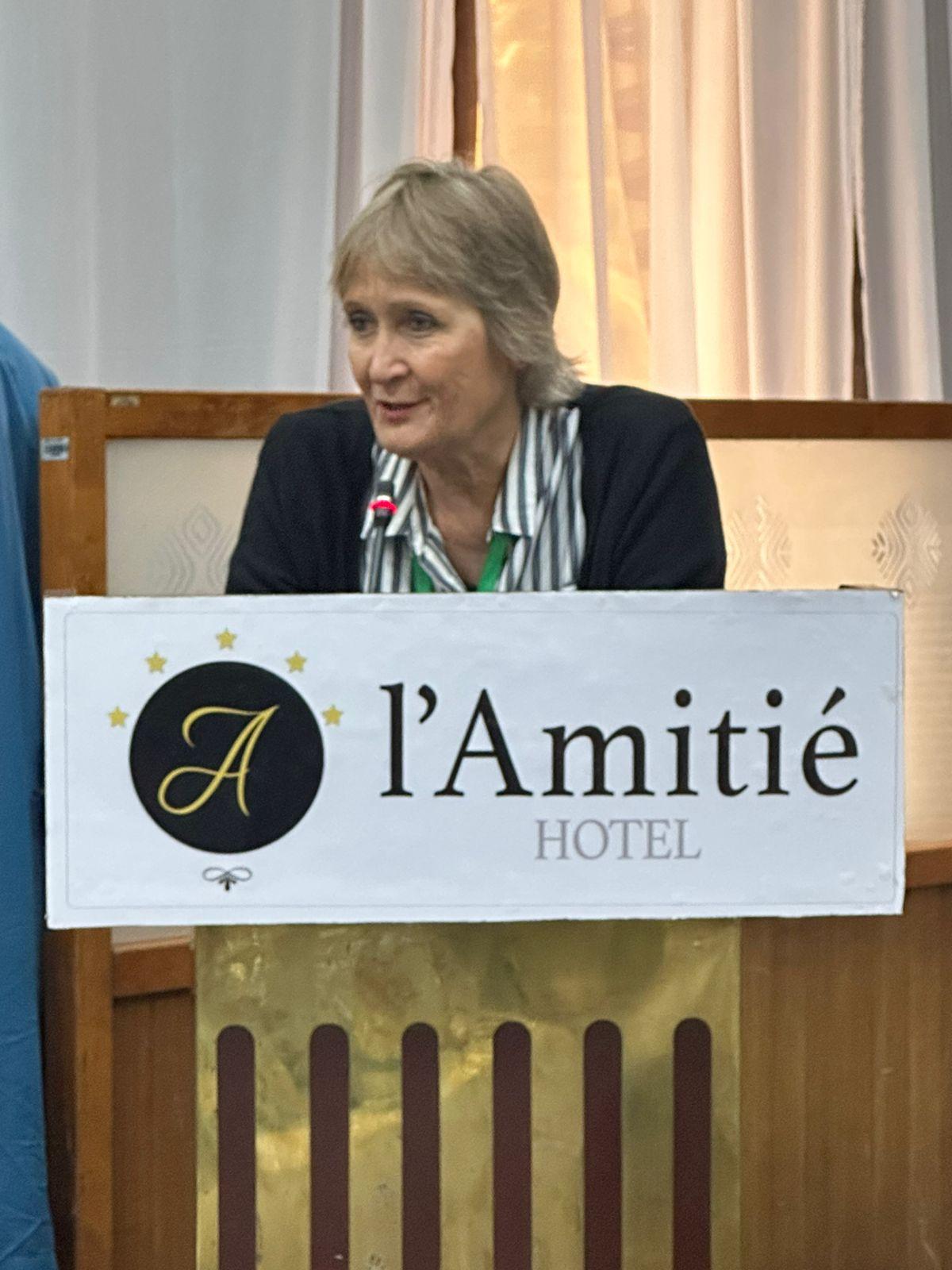
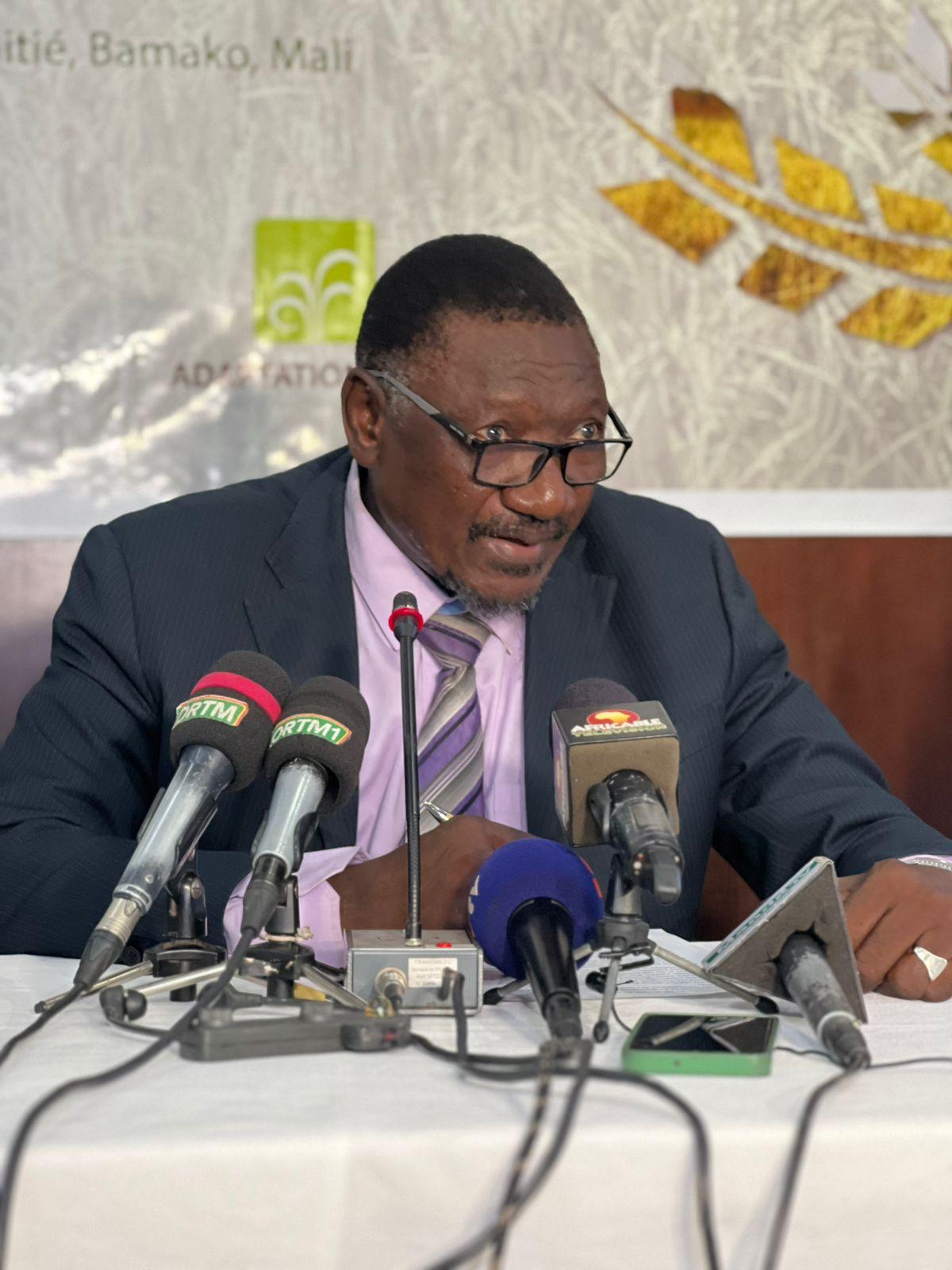
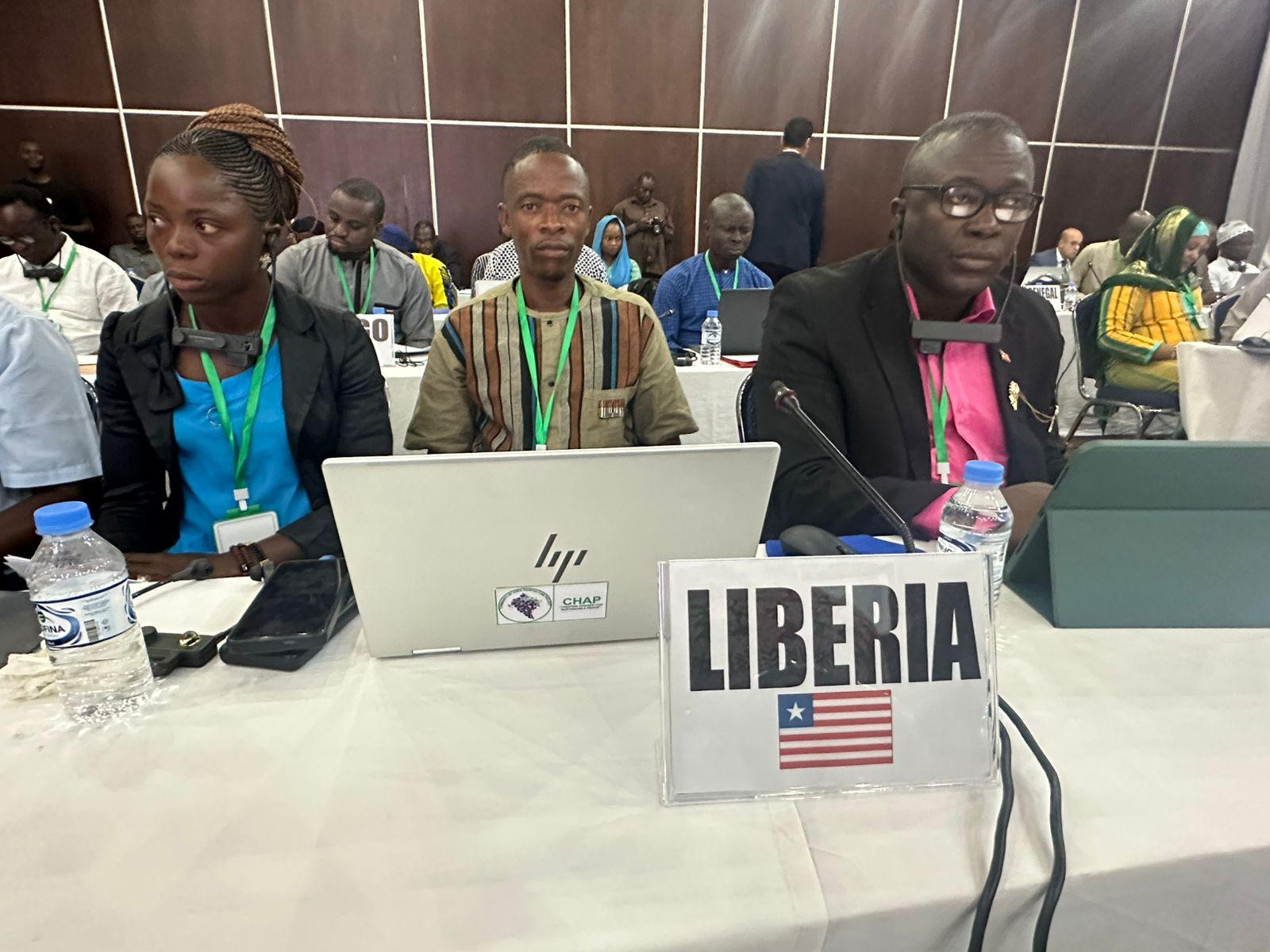
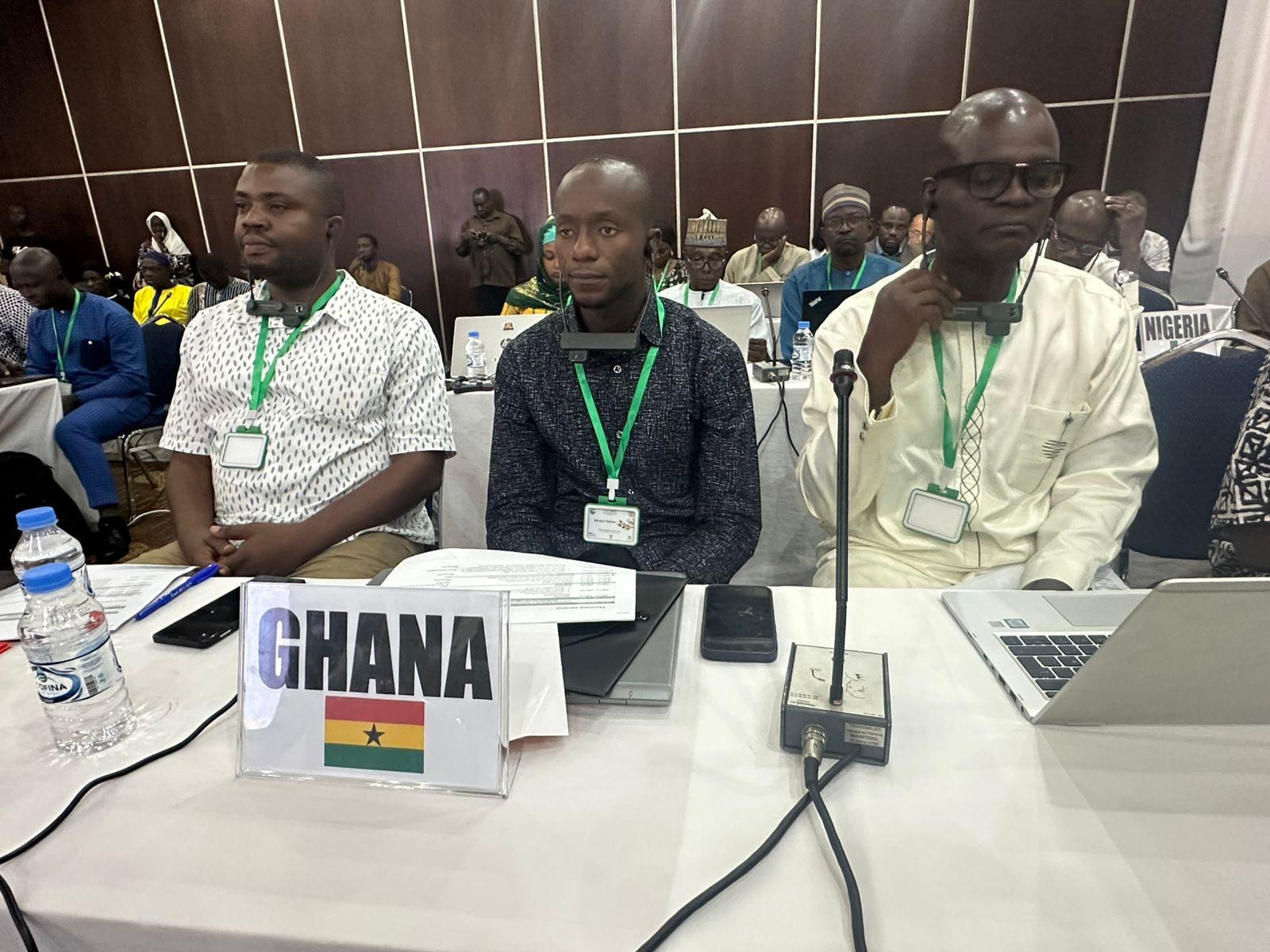
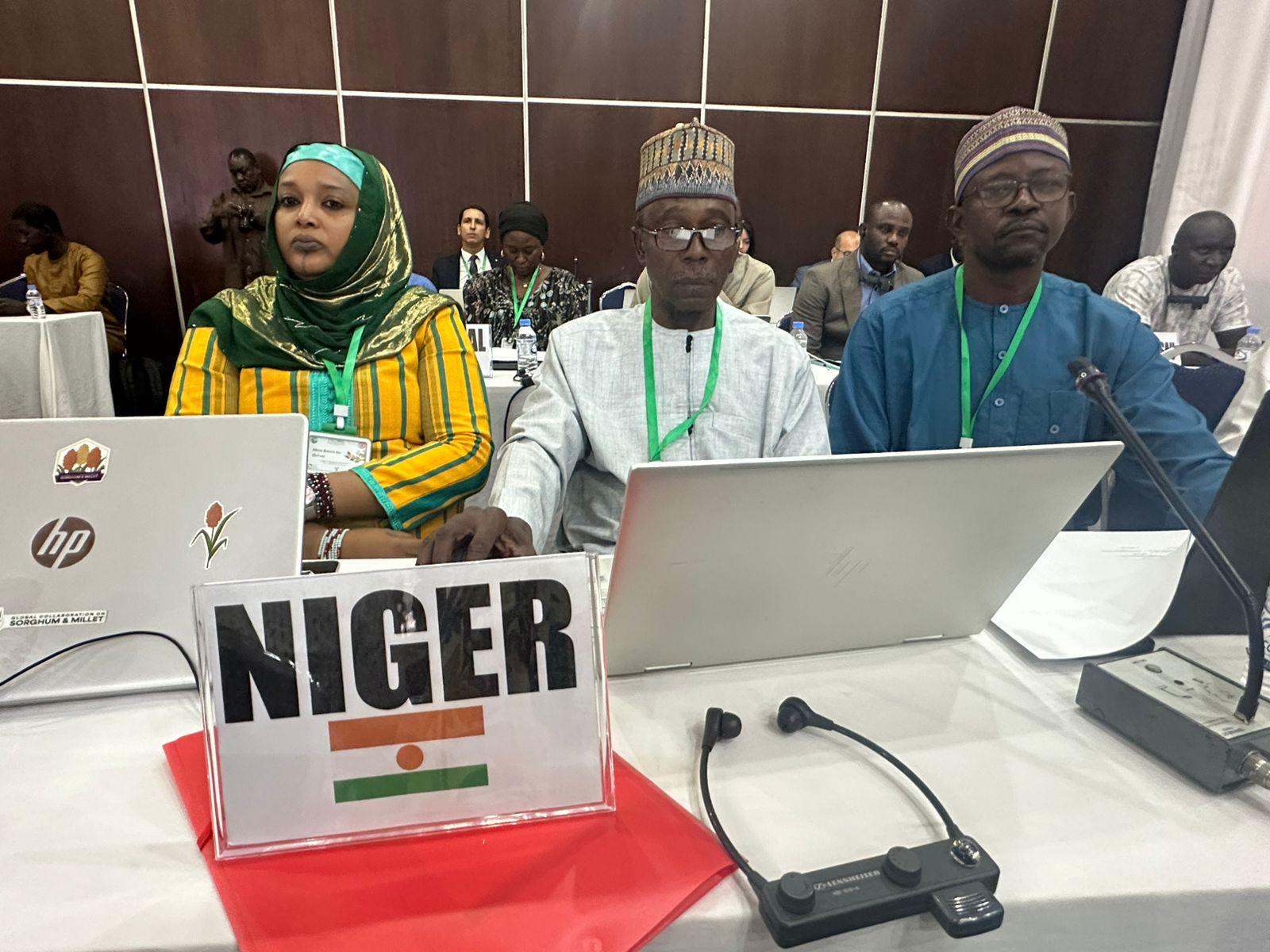
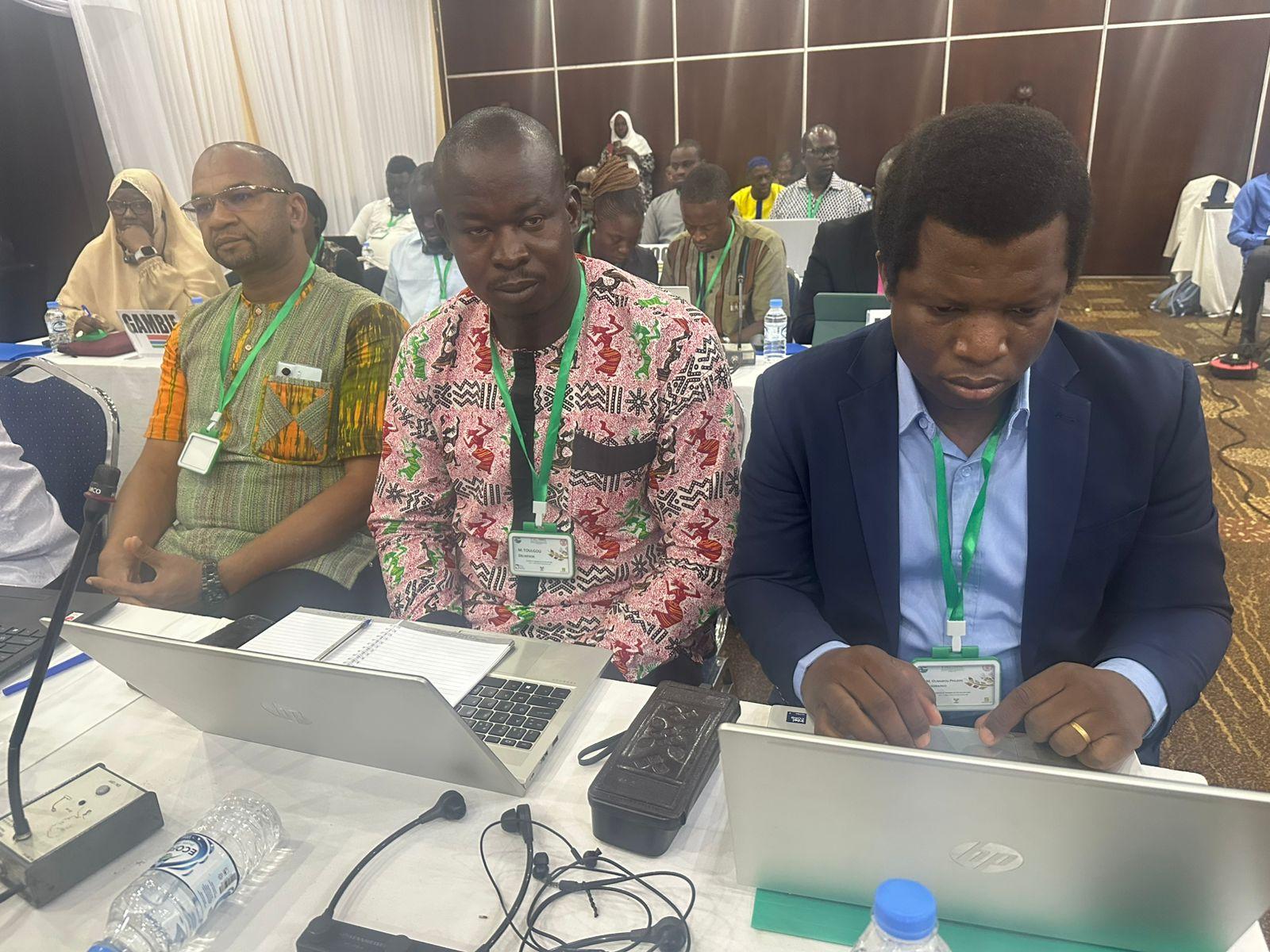
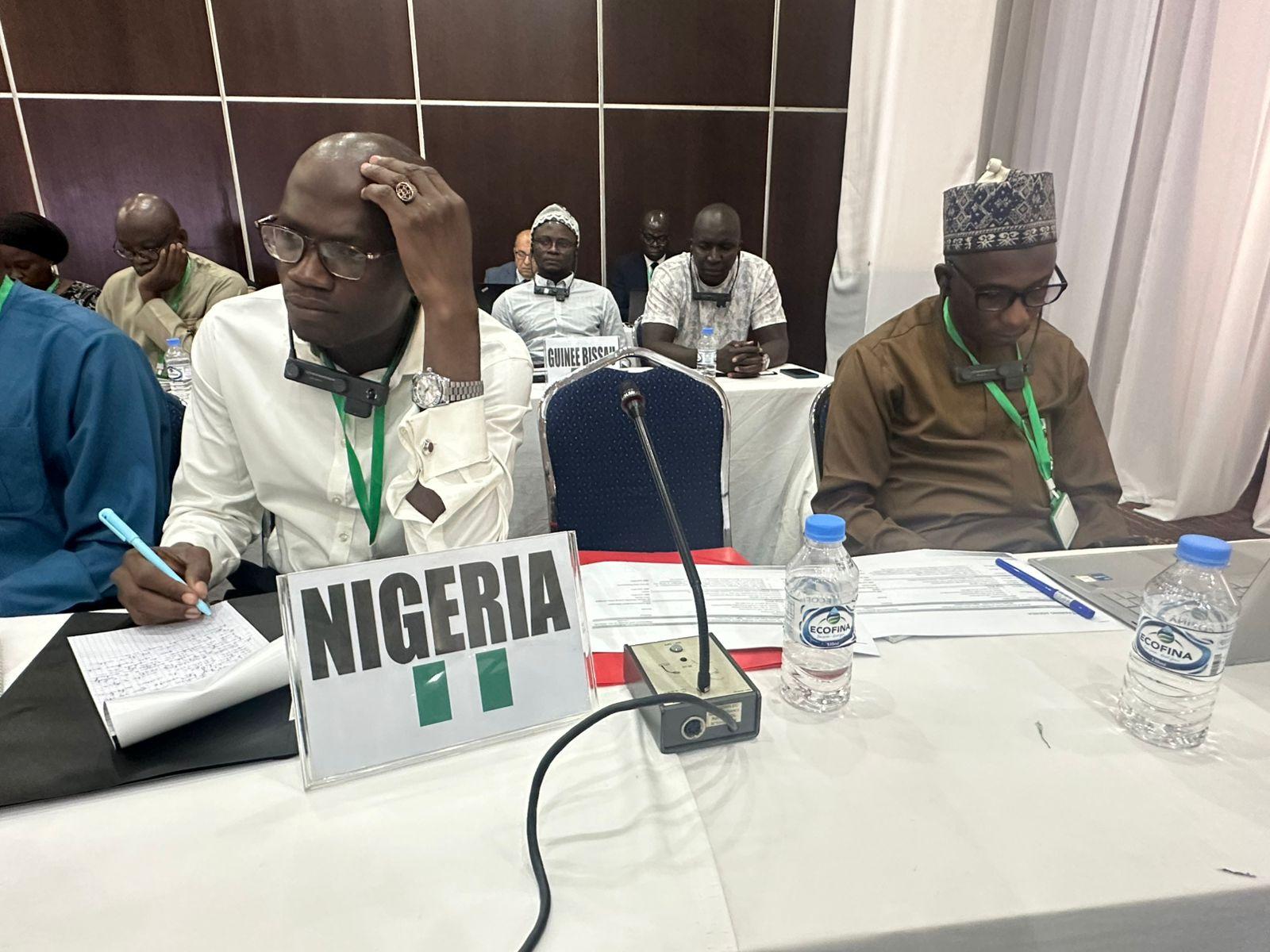
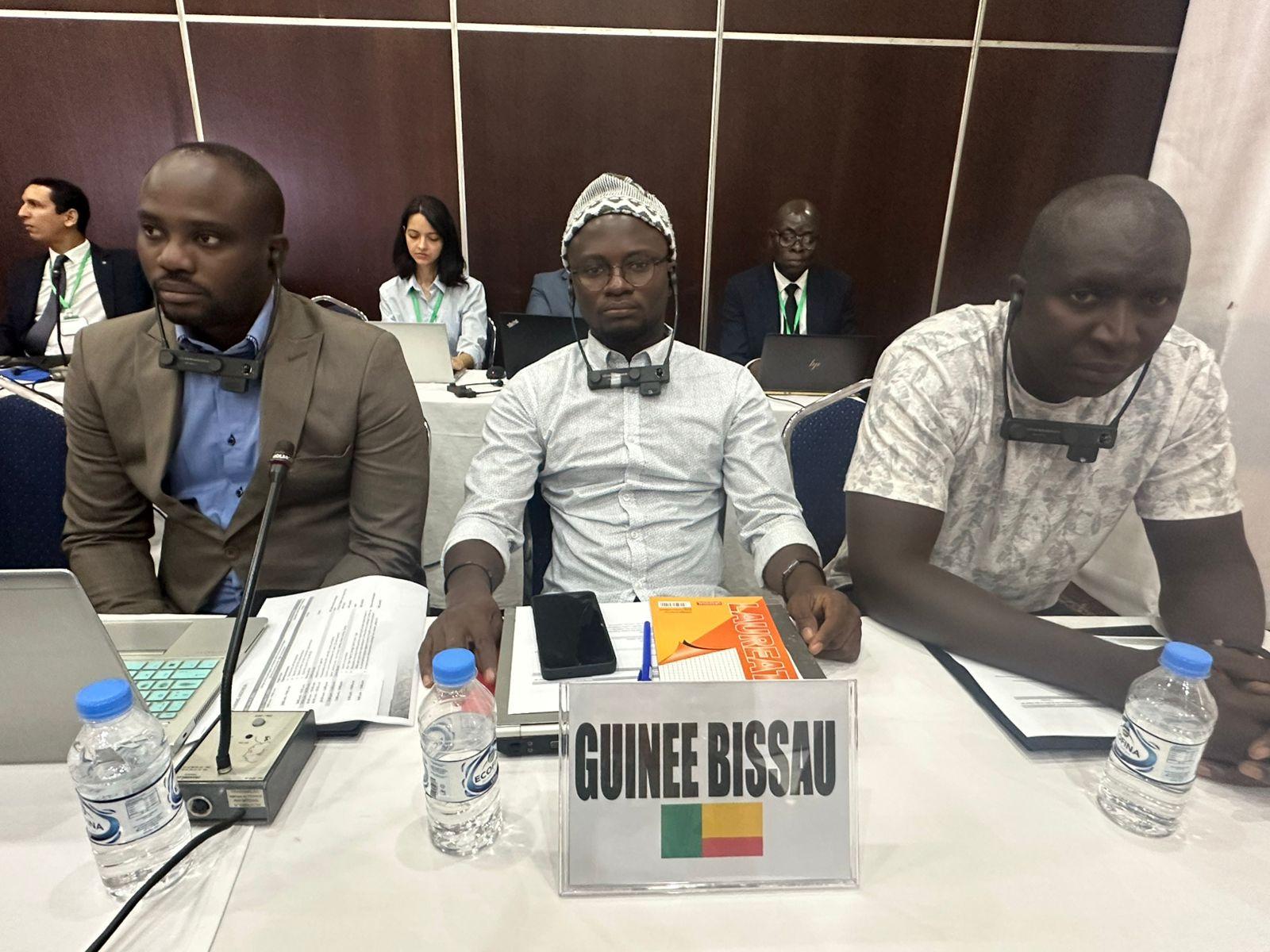
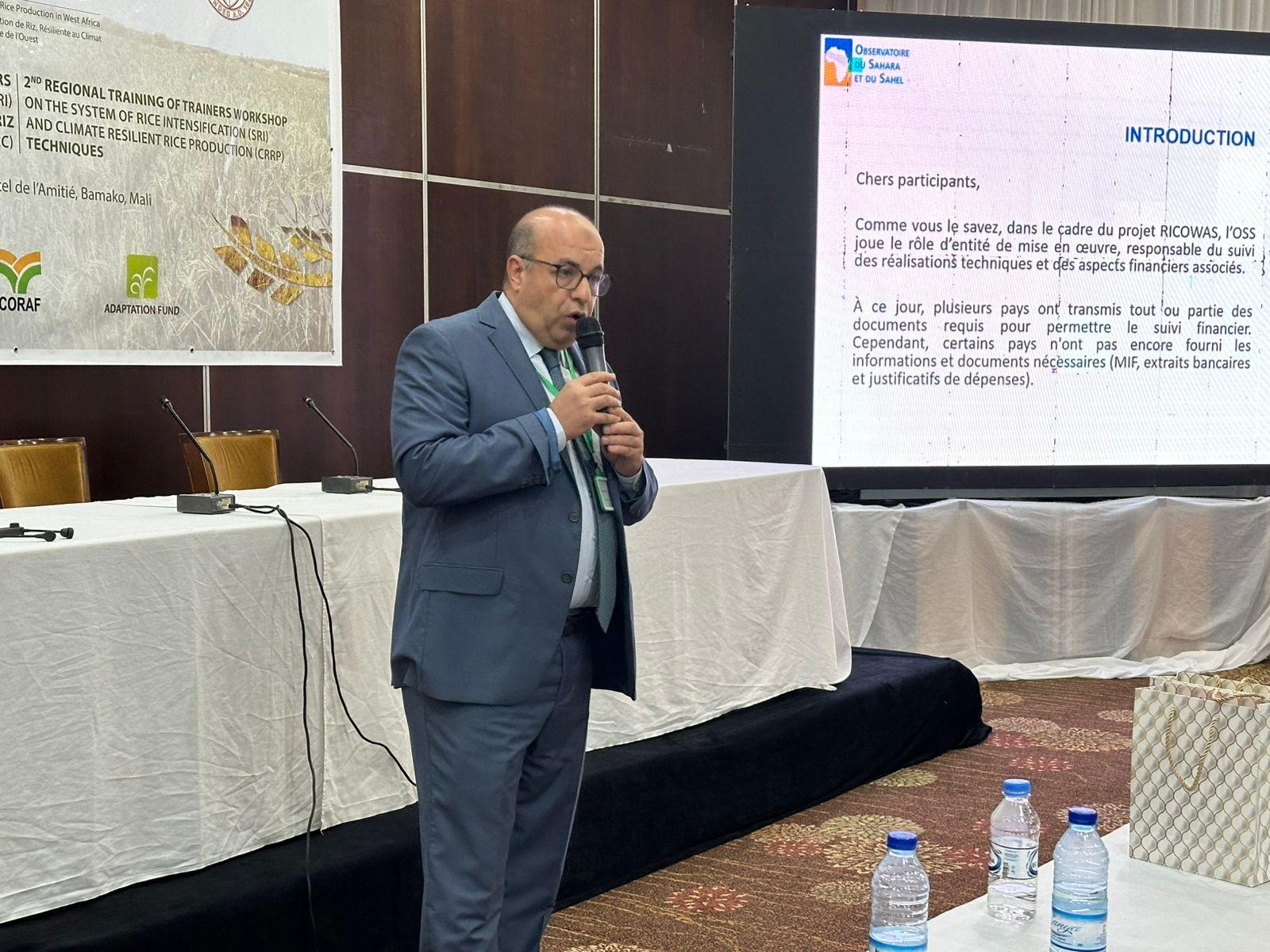
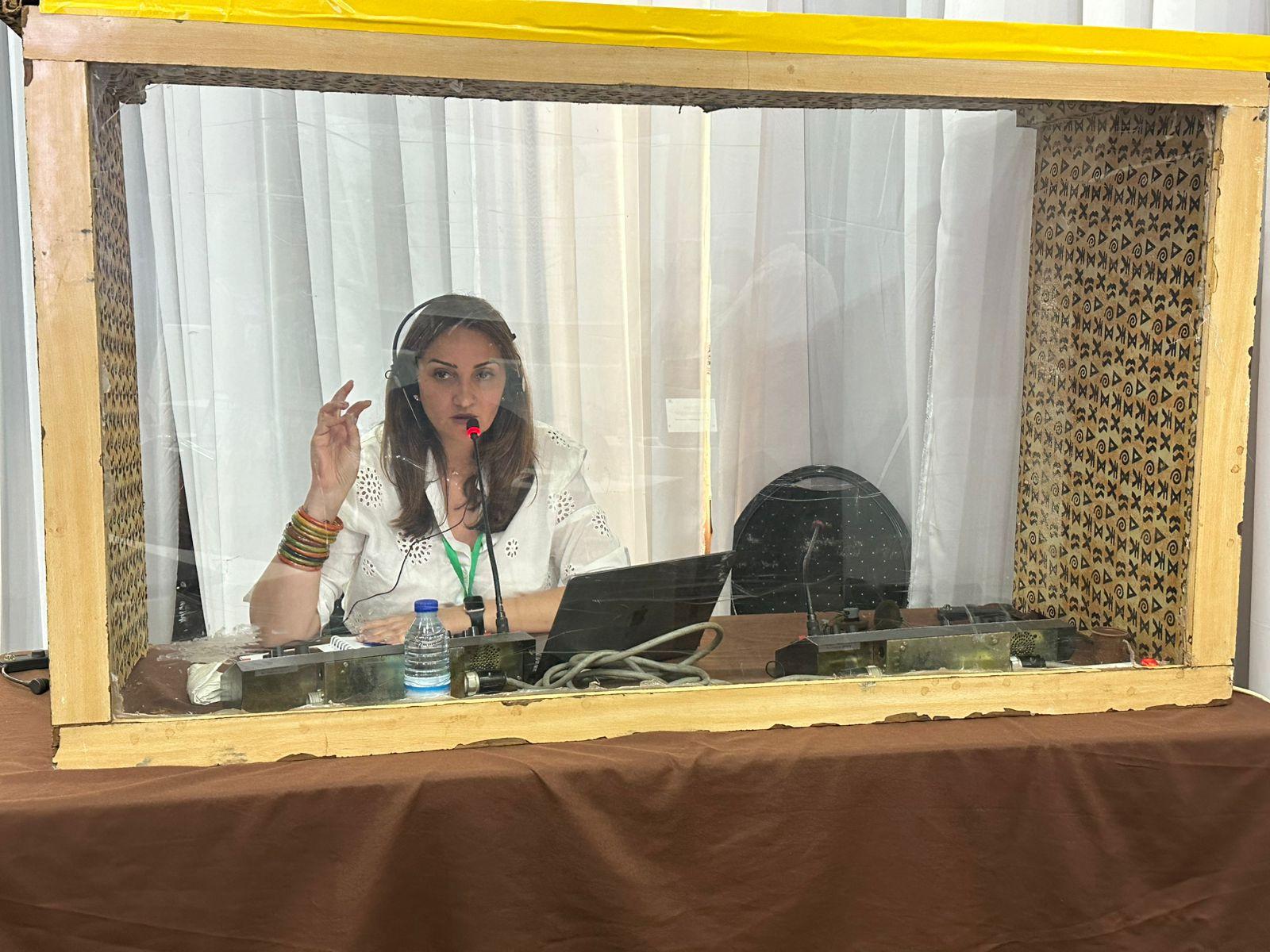
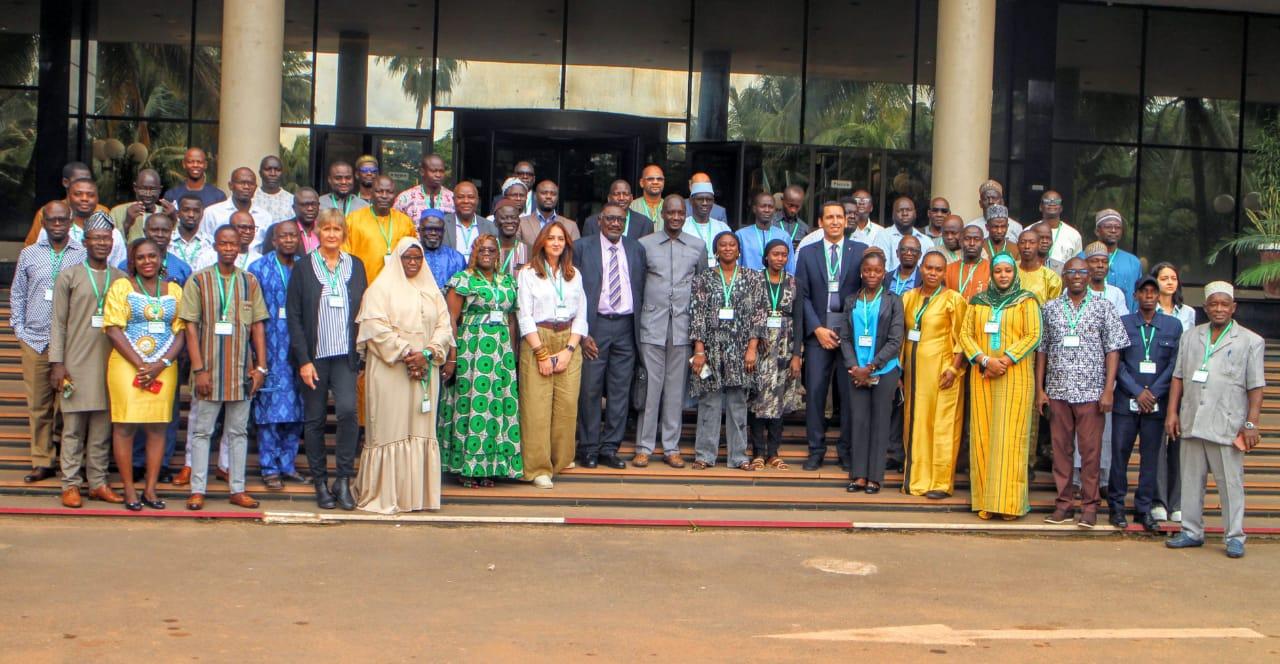
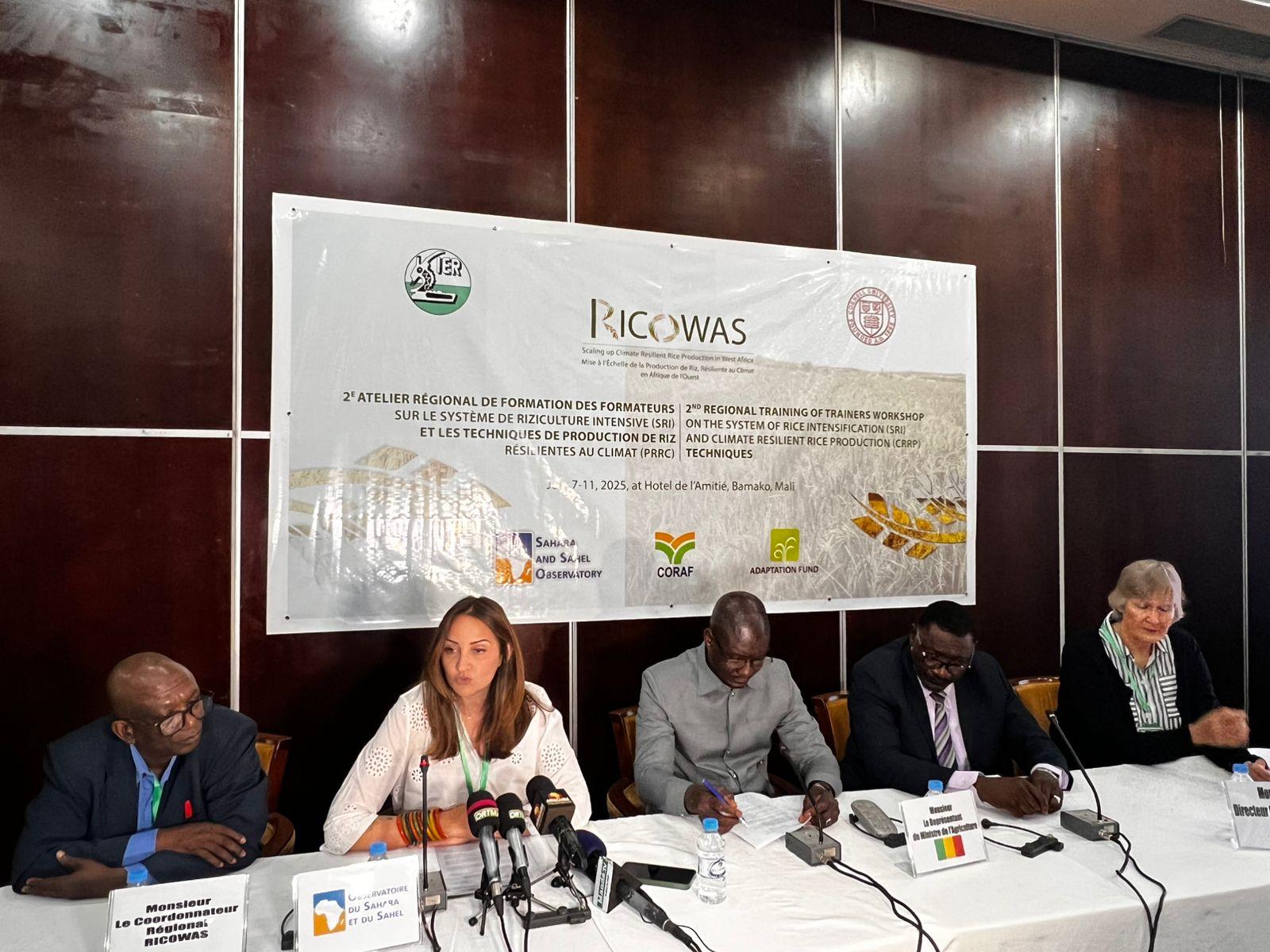
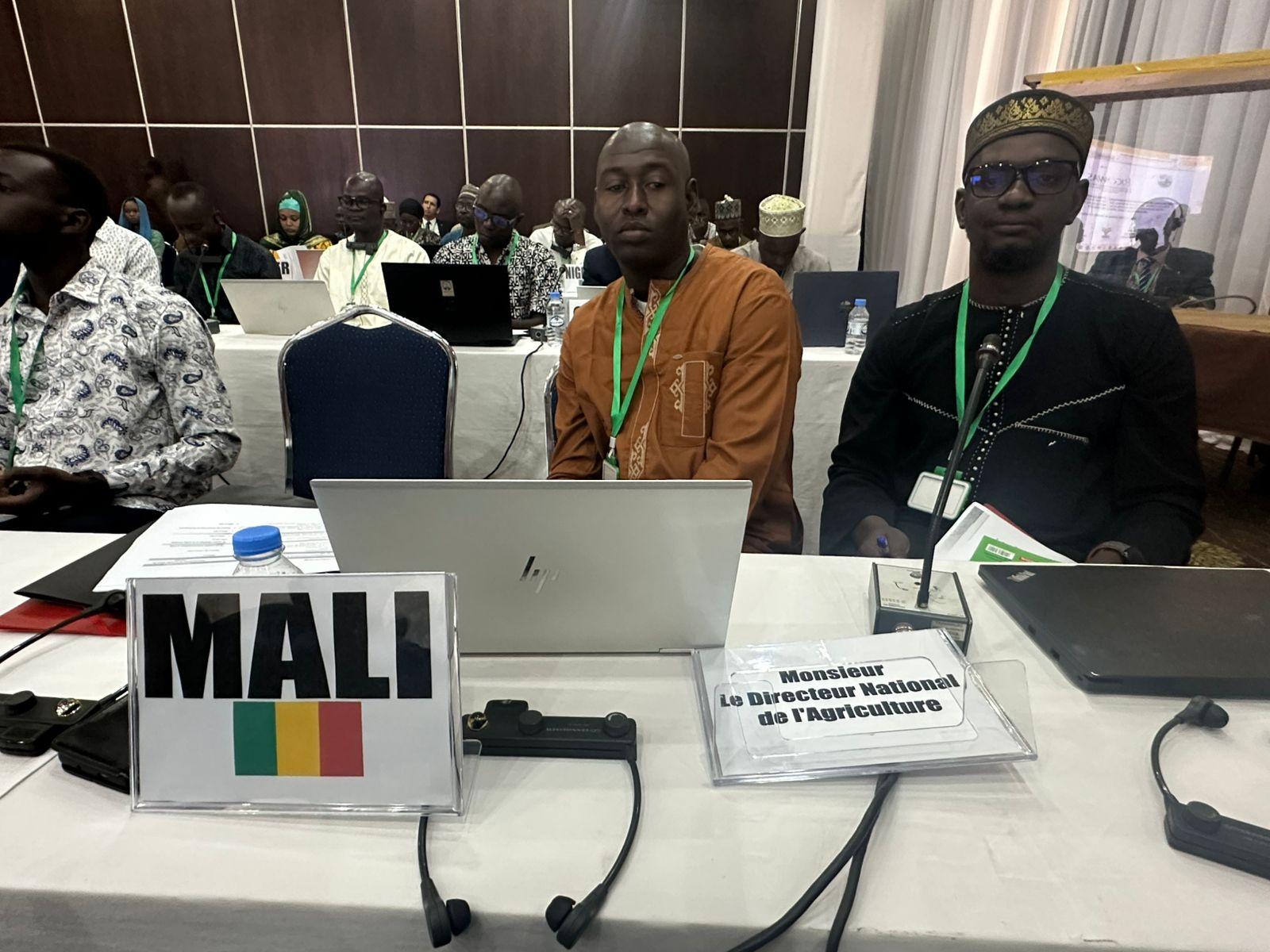
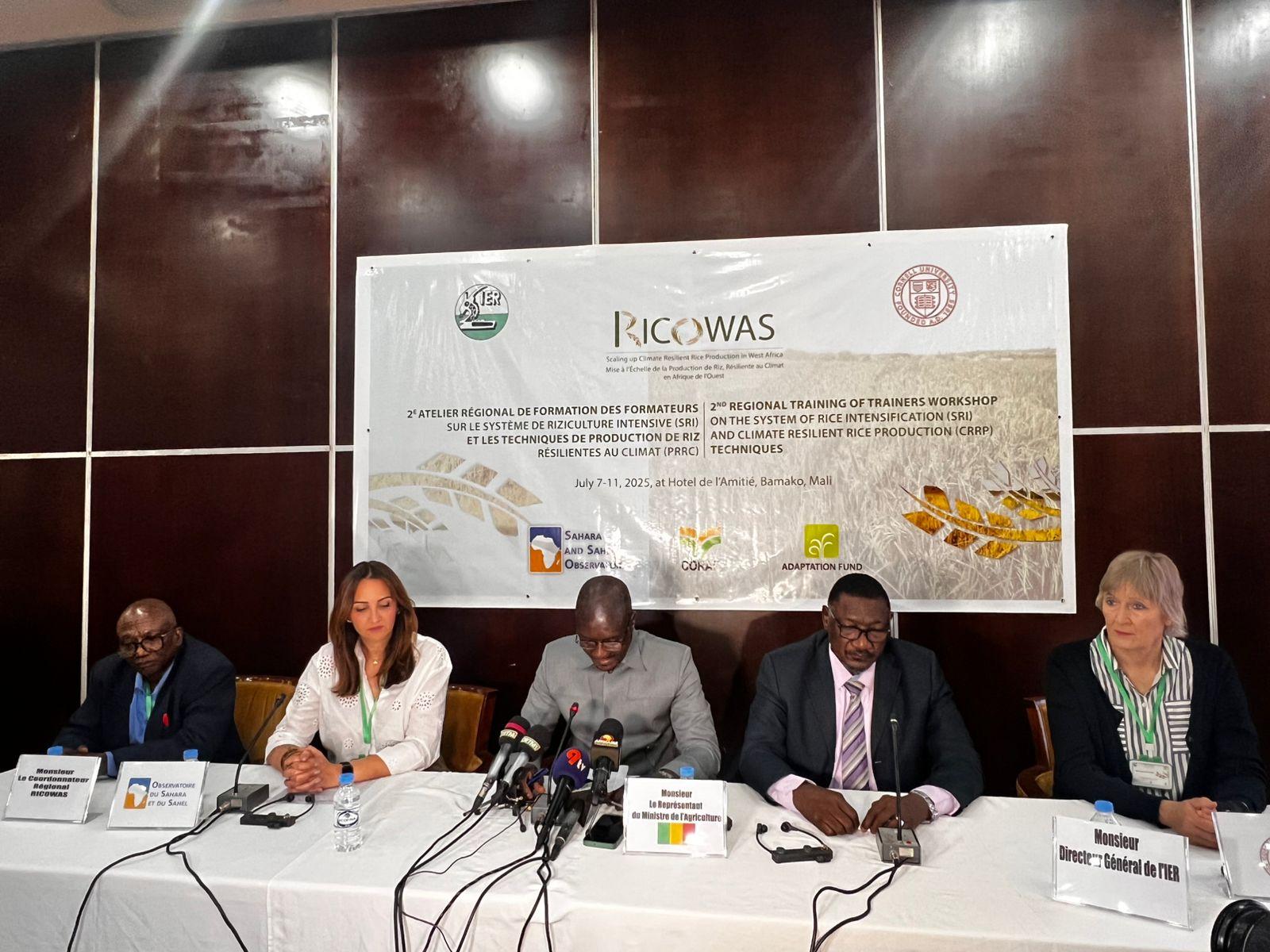
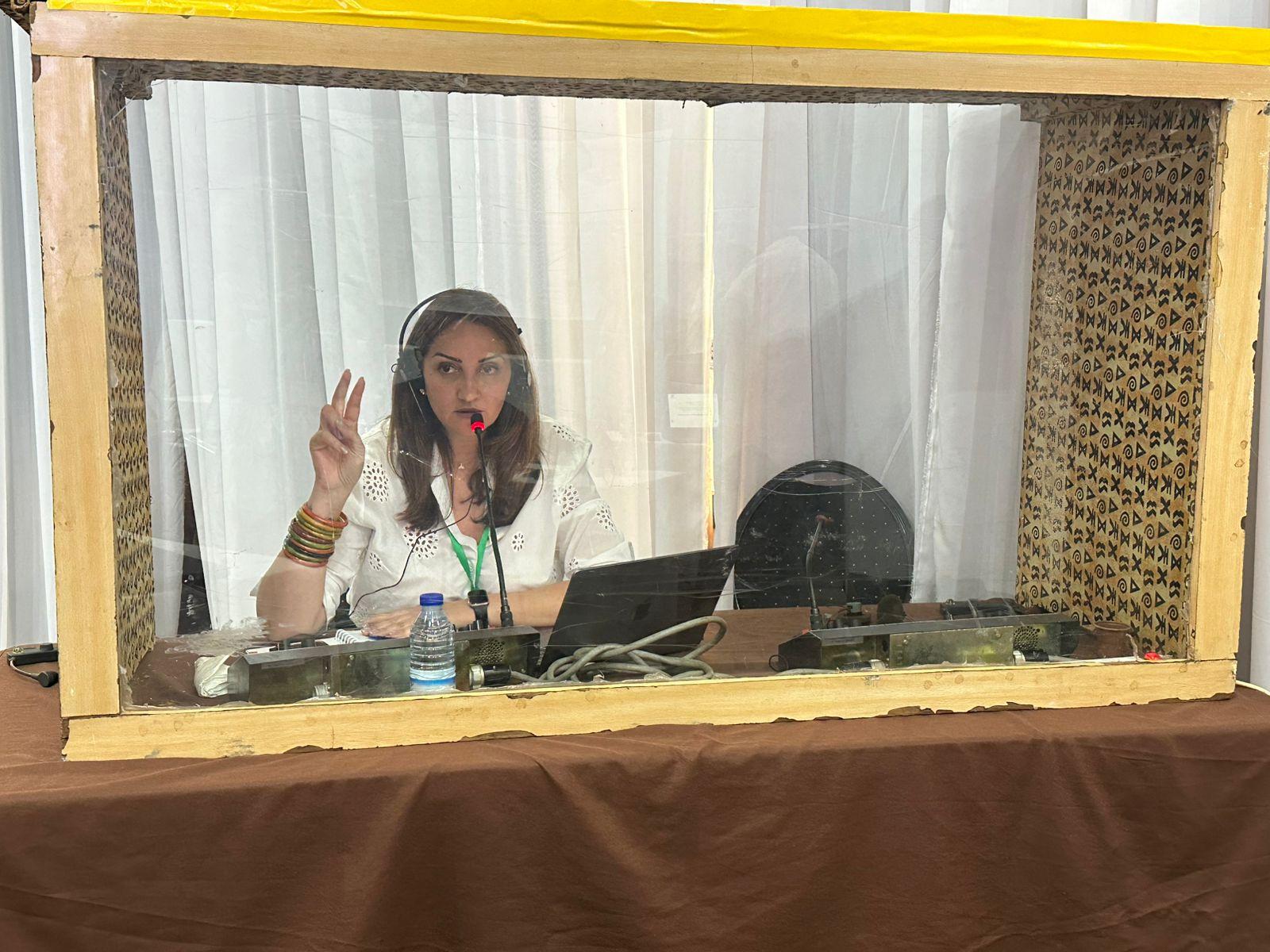
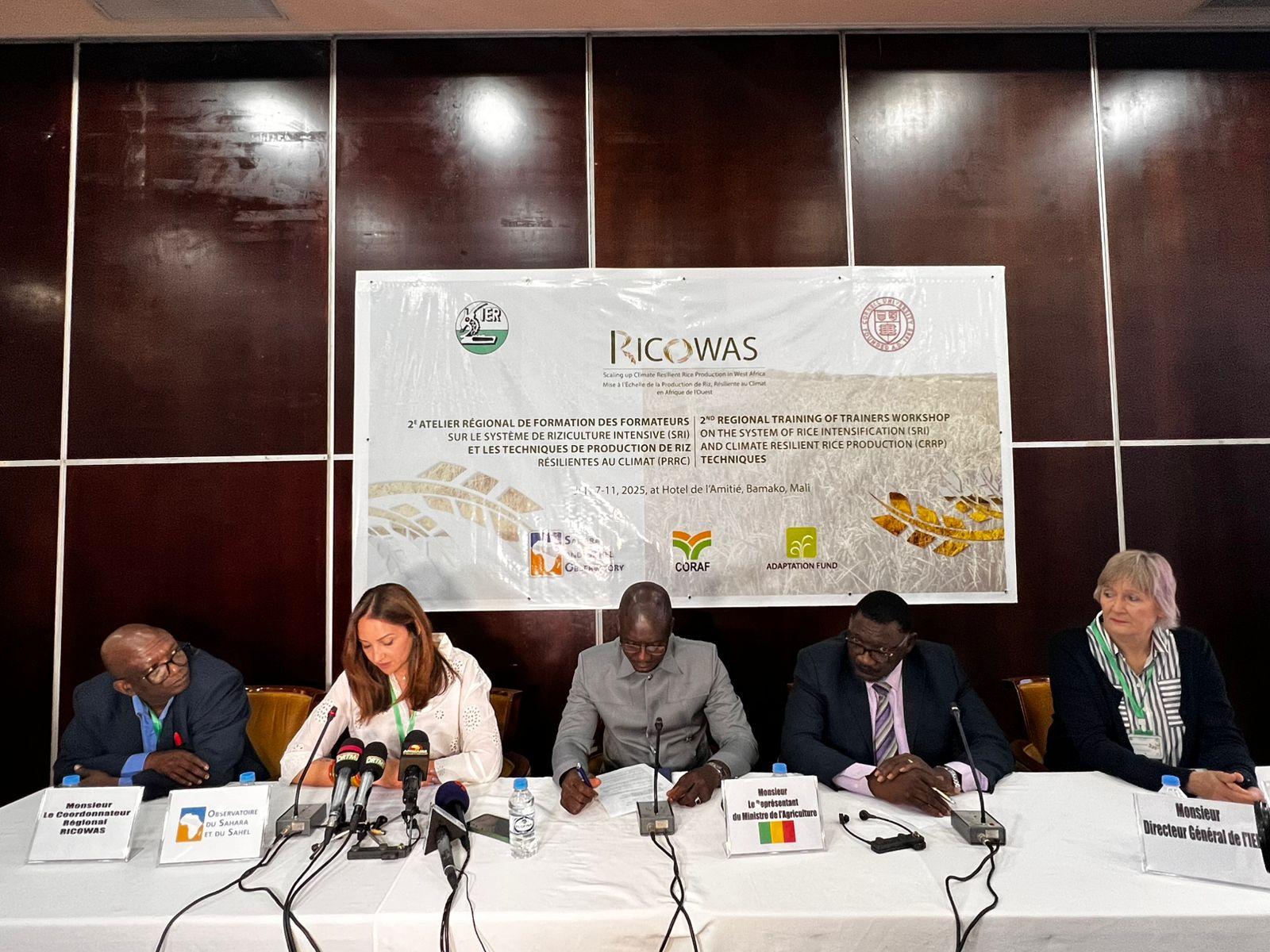
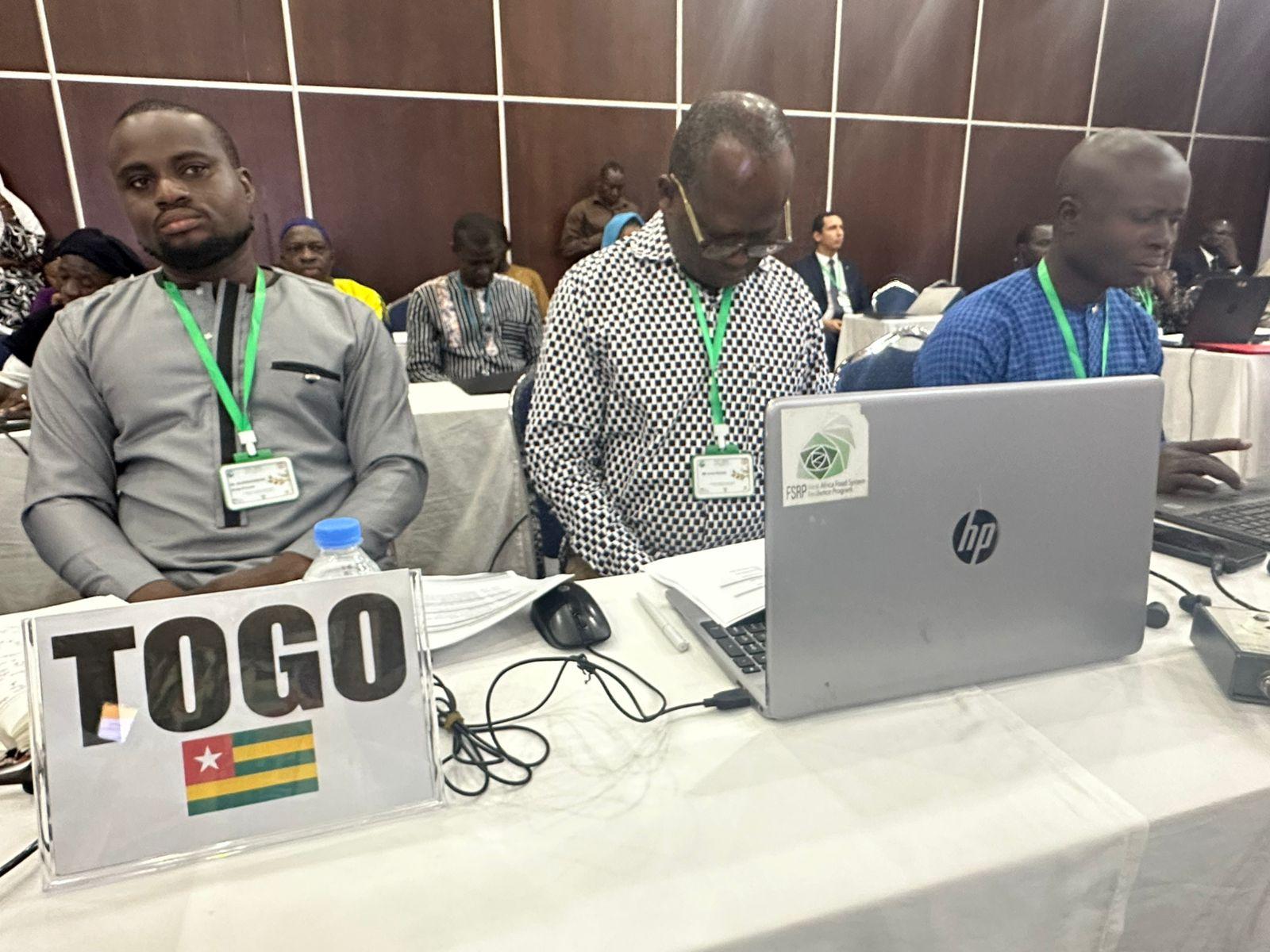
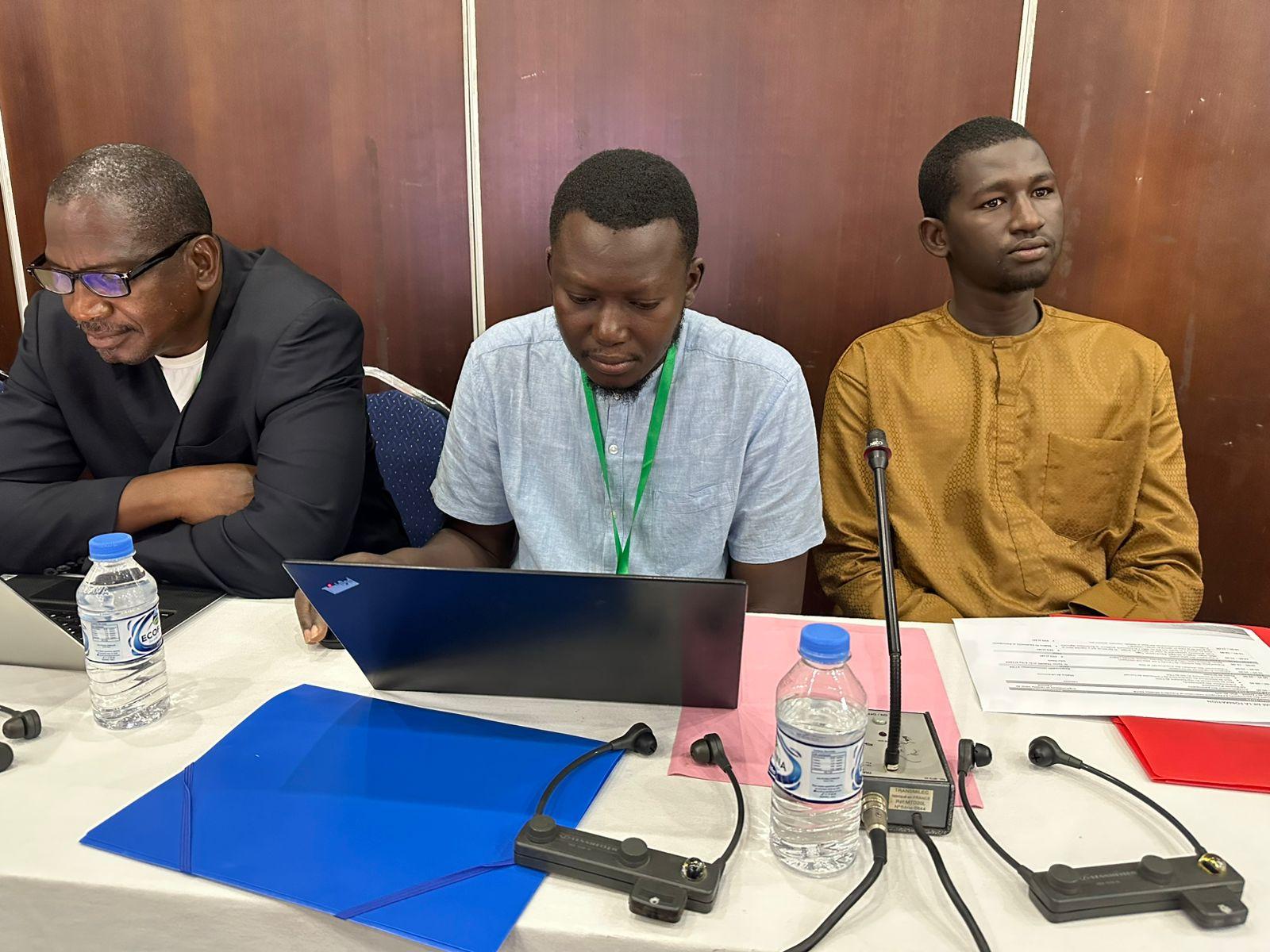
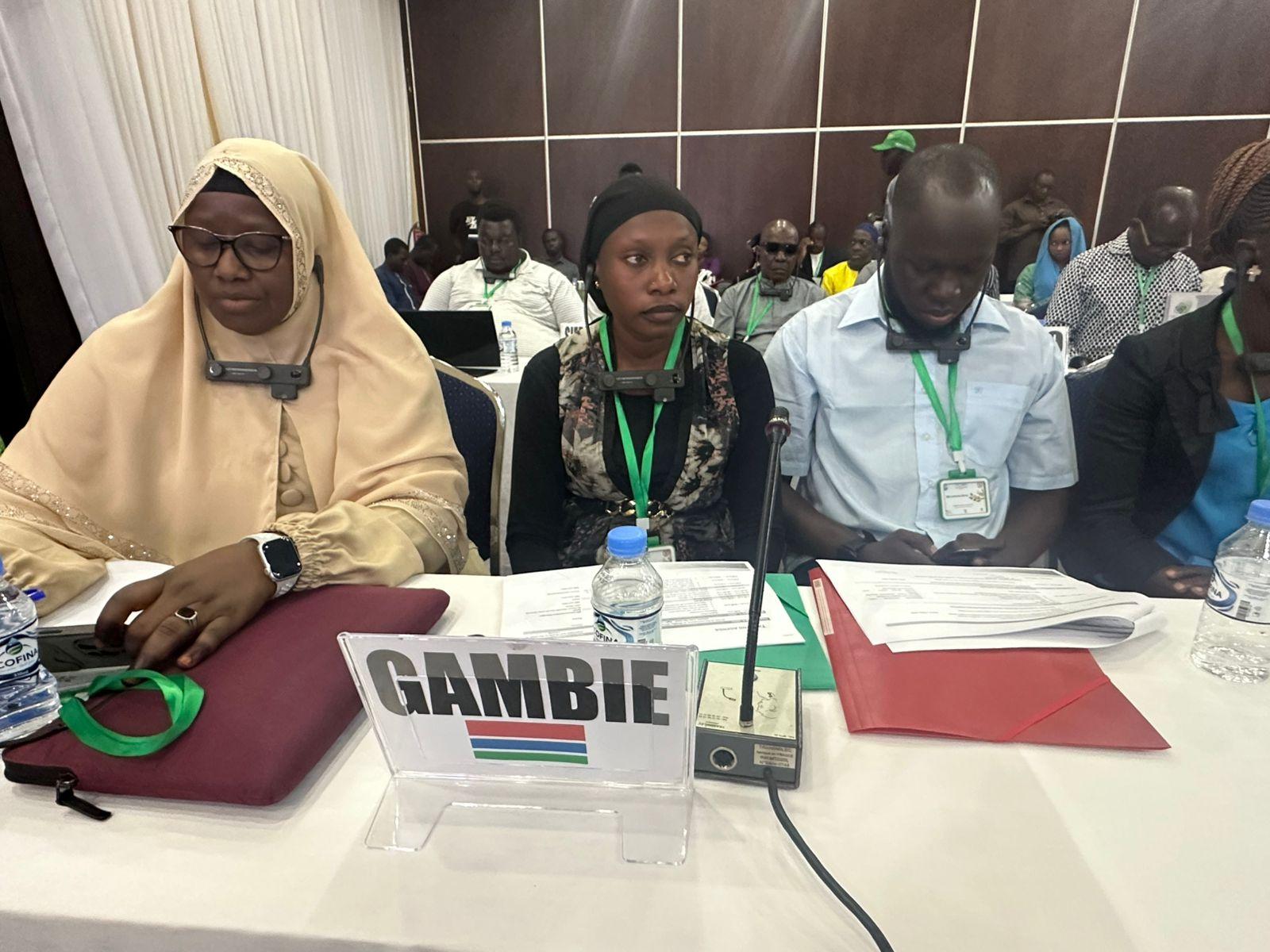
The second regional training-of-trainers workshop under the project “Scaling Up Climate-Resilient Rice Farming Practices” kicked off on Monday, 7 July 2025, at Hôtel de l’Amitié in Bamako, Mali. Organized by the Institute of Rural Economy (IER), the workshop brings together over 40 participants from 14 West African countries, united by a common goal: promoting rice farming practices that can withstand the impacts of climate change.
The opening ceremony featured high-level addresses. Mr. Khalifa Traoré, Director General of IER, welcomed participants and reiterated his institution’s strong commitment to advancing capacity-building efforts. Representing the Sahara and Sahel Observatory (OSS), Ms. Khaoula Jaoui, Director of the Climate Department, underscored the strategic value of this second session in enhancing regional expertise. She stressed the importance of incorporating field experience into training tools and methodologies and welcomed the participation of the APICA-GNB project, implemented by OSS in Guinea-Bissau with support from the Green Climate Fund (GCF).
On behalf of the Minister of Agriculture of Mali, Mr. Tiemo Taoré, Legal Advisor, officially launched the workshop. He highlighted the strategic importance of rice for West Africa—a region that consumes nearly 20 million tons per year, yet only produces about 60% of its needs, resulting in heavy reliance on imports. He encouraged all participants—especially lead trainers—to take full ownership of the SRI and PRRC approaches as effective levers for building a more resilient and sustainable rice sector.
Following the opening, national coordinators shared key achievements and progress made in their respective countries since the start of the project. They emphasized the importance of direct engagement with rice farmers to ensure strong local ownership and effective uptake of SRI-CRRP practices.
Discussions also pointed to the need for strong, effective public–private partnerships to enhance the sustainability of project outcomes. Meanwhile, lead trainers shared valuable lessons learned from their sessions with local trainers and producers, as well as insights gathered from the field.
The remainder of the workshop will focus on hands-on training in SRI and PRRC techniques and on deep-dive discussions around monitoring and evaluation systems. These activities are designed to strengthen technical capacities, promote regional alignment, and pave the way for a successful scale-up of climate-resilient rice farming across West Africa.